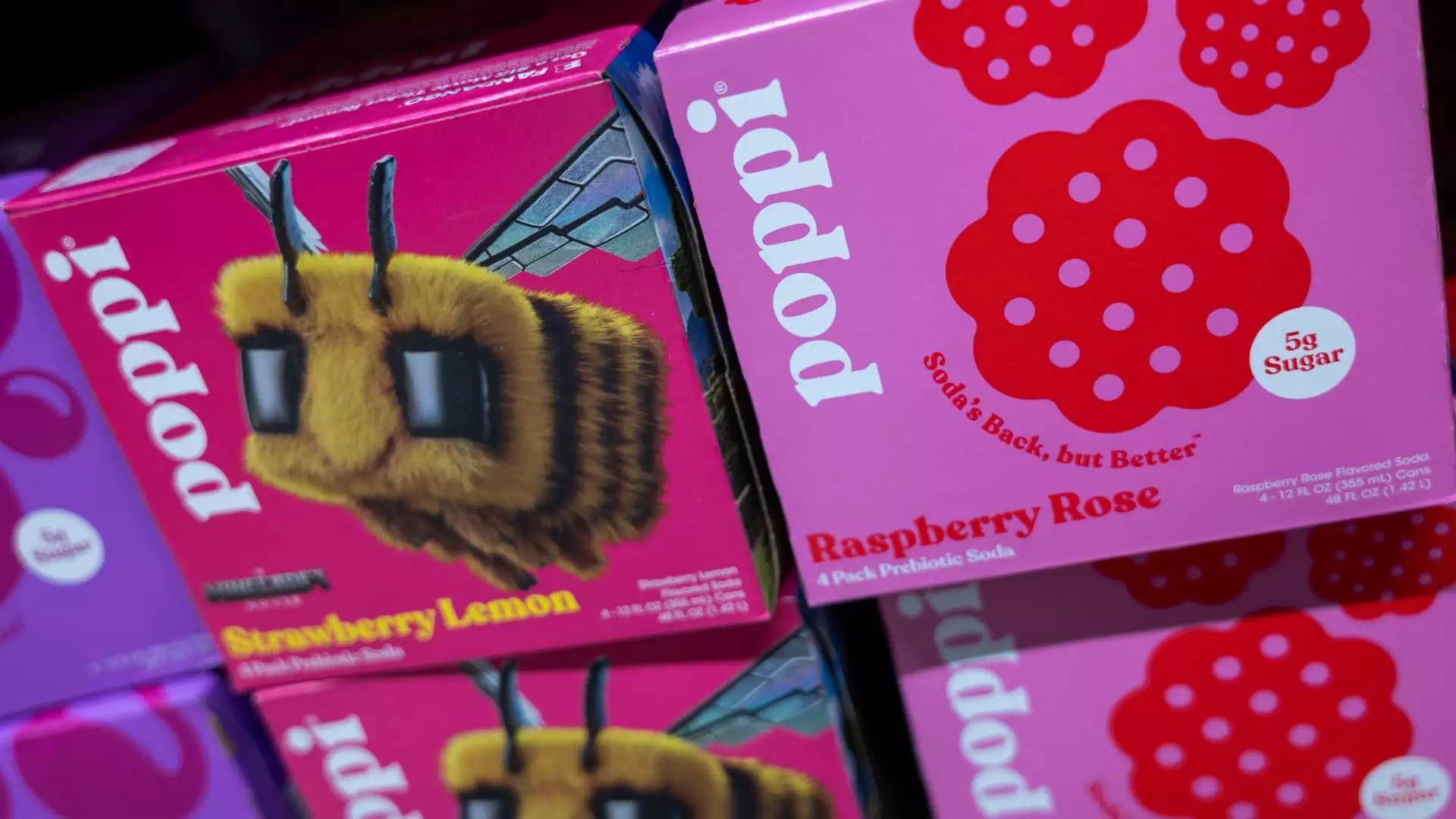PepsiCo’s recent acquisition of prebiotic soda brand Poppi for a staggering $1.95 billion marks a defining moment in the beverage industry—one that signals not just a financial commitment but a recognition of shifting consumer preferences. Over the last two decades, traditional soda consumption in the U.S. has declined, emboldening younger, health-conscious consumers to seek out alternatives. The emergence of brands like Poppi and Olipop, focused on functional benefits rather than mere refreshment, has reshaped the landscape. However, in this race for relevance, I argue that Pepsi may be taking a gamble that could end up tarnishing its brand rather than invigorating it.
The Illusion of Health
While prebiotic sodas have captured market share and consumer fascination, it’s essential to scrutinize their health claims closely. Poppi’s drinks, which include trendy ingredients like apple cider vinegar, are marketed as health elixirs, but the brand has recently found itself embroiled in controversy over such assertions. A class-action lawsuit alleging deceptive marketing practices may undermine consumer trust in Poppi’s purported health benefits. This begs the question: Is Pepsi sacrificing integrity for profitability? The corporate giant might inadvertently be linking its name to an increasingly questionable product line, risking consumer backlash.
The Financial Crunch
Pepsi’s financial structuring of the acquisition emphasizes an intriguing move. The nearly $2 billion purchase price is offset by $300 million in anticipated cash tax benefits, which effectively lowers the net price significantly. However, the need for further performance-based payments post-acquisition could create financial burdens, especially if Poppi falls short of its ambitious sales projections. Pepsi’s existing soda empire is already facing pressure from rising costs and shifting consumer preferences, and adding a high-risk venture like Poppi may complicate its financial picture rather than enhance it.
Market Saturation and Competition
The surge of interest in prebiotic sodas is fostering a crowded marketplace. Coca-Cola’s new entry, Simply Pop, exemplifies the rush to catch up in this niche. While the acquisition of Poppi strengthens Pepsi’s foothold, it could also contribute to market saturation, where consumers may become overwhelmed by choices. This can dilute brand messaging and dissuade loyal customers from sticking with either Pepsi or Poppi. In an already competitive environment, the risk of blending into a sea of alternatives is high.
The Long Tail Dilemma
Finally, let’s discuss longevity. The beverage market is not just a game of grabbing current trends. History shows that many health fad products fade as consumer interest shifts. If Poppi fails to maintain its customer base or if new entrants outpace them, Pepsi could face a situation reminiscent of many past acquisitions, where the financials seemed great on paper but became an albatross in practice. As such, while this acquisition might appear to be a clever strategic move today, the long-term consequences could prove detrimental to Pepsi’s brand reputation and operational focus.

